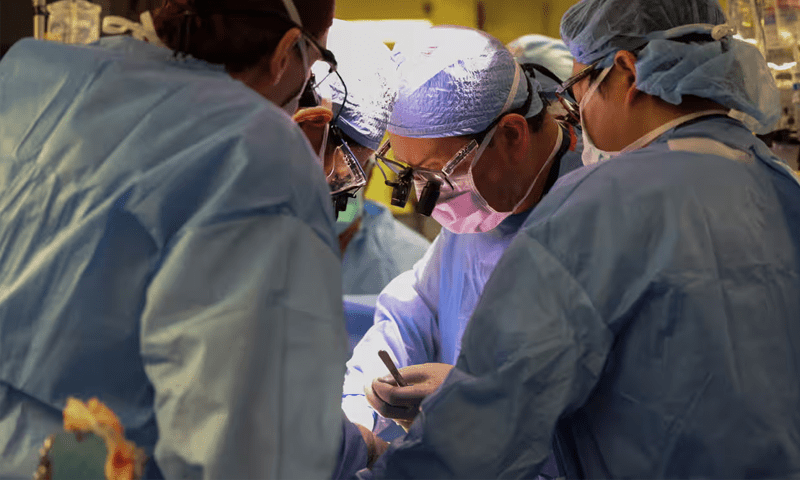In a potentially groundbreaking event for organ-needy individuals, medical professionals in the United States have implanted a genetically altered pig’s kidney into a man.
This significant surgery took place at the Massachusetts General Hospital in Boston and lasted four hours. The recipient, Richard Slayman, is currently in stable condition and is expected to be discharged shortly.
Dr. Jim Kim, the director of kidney and pancreas transplantation at the USC Transplant Institute in Los Angeles, shares that experts are eagerly observing the long-term outcomes of a revolutionary animal-to-human transplant procedure.
Meanwhile, a patient named Slayman had undergone a human kidney transplant at the same facility in 2018, following seven years of dialysis. Unfortunately, the transplanted organ failed after five years, and he has since returned to dialysis treatments.
A kidney was supplied by eGenesis, located in Cambridge, Massachusetts, which originated from a pig that underwent genetic modifications. These alterations removed detrimental genes for a human recipient and introduced beneficial human genes to enhance compatibility. Additionally, the company inactivated inherent pig viruses that could potentially infect humans.
Researchers reported in the Nature journal that kidneys from genetically modified pigs by eGenesis were successfully transplanted into monkeys, keeping them alive on average for 176 days. In one instance, the transplant lasted over two years.
Experimental antibody, tegoprubart, developed by Eledon Pharmaceuticals (ELDN.O), is utilized to minimize the risk of organ rejection in patients receiving pig organs. This drug assists in preventing the patient’s immune system from attacking the transplanted organ.
Dr. Robert Montgomery, director of the NYU Langone Transplant Institute and not associated with the case, commented that the recent surgery signifies advancement in xenotransplantation, which involves the transfer of organs or tissues between different species.
The field is progressing towards potentially becoming an alternative source of organs for the numerous individuals experiencing kidney failure, as mentioned in an email.
As stated by the United Network for Organ Sharing, over 100,000 individuals in the United States are in need of an organ transplant, particularly kidneys. In the past, surgeons from NYU have successfully transplanted pig kidneys into brain-dead patients.
Montgomery mentioned that transplant centers are adopting various strategies concerning gene modifications and medications. He also highlighted that a significant advancement would be when the FDA approves clinical trials, allowing us to determine the most effective methods for patients on the waiting list.
In January 2022, a group from the University of Maryland conducted a groundbreaking surgery, implanting a genetically altered pig’s heart into a 57-year-old patient suffering from severe heart disease, who ultimately passed away after two months.


